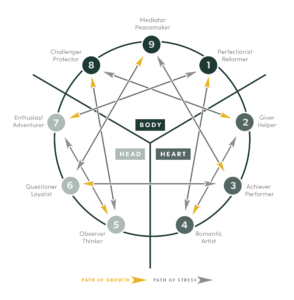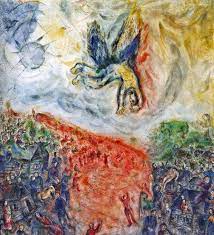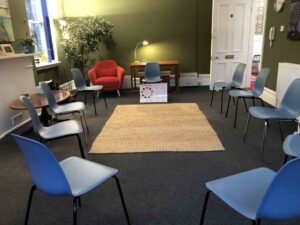************* NOW BOOKING FOR TERM THREE (and an option to join a 3 week “primer”, see below) ************
Through the lens of the enneagram
It is with a great deal of excitement that I announce a new group experience opportunity for practicing counsellors and psychotherapists. The invitation is to come together and explore three levels of being through the ancient “map” of the Enneagram:
- Intrapersonal – knowing our own process: personal aspects of temperament and developmental adaptations
- Interpersonal – knowing the dynamic in relationship: exploring how our own being mixes with that of others
- Transpersonal – knowing our identity within the bigger picture: feeling our relationship with humankind, life, the cosmos
Encompassing all these levels, the benefits of this group thus span personal and professional development. To know ourselves more fully; and to offer a comprehensive lens for our clinical work.

What is the enneagram?
A simplistic description of the Enneagram would be a system of personality and character: indeed, it does describe Nine* different habit patterns across thinking, feeling, and behaving. However in my personal and professional experience – especially as a Humanistic psychotherapist with a skepticism toward labels – I have come to know the Nine Types to function as a “map” that emphasises each being’s wholeness whilst simultaneously pointing out how we have lost contact with that ground or source (in Nine different ways). It is therefore grounded in both psychological and spiritual knowledge, Eastern and Western wisdom.
For more background, please visit this blogpost I have written, but essentially the Enneagram describes both
- the Nine ways in which we focus our attention
- the Nine ways we can find our way back home to wholeness
[*Nine becomes more nuanced as we explore each type’s “wings”, points of integration and stress, the three instincts (subtypes) not to mention, the tritypes! I add this now to allay any fears about ‘pigeon holing’ ourselves and our clients]
What does the transpersonal have to offer?

Each psychotherapeutic tradition has its view on human nature; whether we hold the view that we are subject to underlying drives, have a natural propensity toward wholeness, or already have fundamental intelligence…all modalities have been shown to be helpful models for healing. A transpersonal view helps us integrate and go beyond the self. Conveying that each being contributes to (and is essential within) the whole, exploration moves to how we are blocked from that wholeness in the immediacy of each moment; how we have “fallen” from our original nature. The transpersonal is often used interchangeably with ‘spiritual’, but in my experience ‘spiritual’ gets conflated with religion. Whilst organised religion is one vehicle to connect to the bigger, more spacious possibility of existence, equally we can recognise our interconnectedness through nature, music, dance…and in relating. The Enneagram has been an invaluable companion on my own path as a practitioner of Buddhism (as I am sure I will come to share during these group meetings).
The group format
As an educator of trainee counsellors and therapists, I have witnessed the benefit that working with group process has on being and becoming – learning who we are (and who we are not), and how we bring that being into relating; and the alchemy that ensues! Participation in groups helps us “knock off the dirt” (as a Zen teaching describes the jostling of potatoes in a sack) – we come to know our blind spots from more angles than one-to-one relationship. Furthermore, as a supervisor of qualified practitioners, I hear the lamenting of missing the group: the being-with-other who are treading the same path of becoming. Private practice can be isolating, we look for kindred. We might also miss the nourishment that the combination of practice and theory provided on our training courses. As one supervisee shared with me recently, “I miss the chance to study, to stay close to my roots”.
The opportunity
In these weekly sessions, we will come together in a small group (approx 8) and explore the Enneagram, and ‘what it is like to be’ our own Type. We will become curious with how we are interacting in the group and think about how our Types engage: in Gestalt terms, the quality of contact (how we come together, how we move apart). There is also an invitation to discuss client case work: to consider client Type and again, how the interaction of therapist-client Type might go some way to teasing out the in-between. Furthermore, coming back to the ongoing study and mastery of our craft, the group might like to incorporate aspects of theory and book reading. This is a collaboration, and we can explore together how best we want to tread this territory.
Pre-requisites
All participants will be in practice and undergoing regular supervision. Whilst no prior experience of working with the Enneagram is necessary, it is expected that all participants will:
A) have a sense of their own Type
B) have explored some basic tendencies of that Type
I am happy to help applicants get to this “first base” with pointers (you can make a start on the resources page)
The format of the sessions
The sessions are Tuesday afternoons for 1.5 hours (4 – 5:30pm)
The group will meet for 3 terms over the year, each term 8 weeks in length
When you sign up, the minimum commitment is for the whole term
- 2024 Term 3 Tues 5th Nov to Tues 10th Dec (6 weeks)
- 2025 Term 1 Tues 14th Jan to Tues 11th March (no session Tues 11th Feb, an 8 week term)
- 2025 Term 2 Tues 29th April to Tues 3rd June (no session Tues 27th May, an 8 week term)
- 2025 Term 3 (TBC)
Cost: £120 term 3; £160 for terms 1 and 2; includes handouts and materials as generated
New for this autumn term – a 3 week “Primer”
If you are new to the enneagram, you will find it helpful to attend the 3 week primer to get you upto speed for the next term of the group meeting. This will run Tues Oct 8th to 22nd, 5-6pm. Contact me if you are interested in joining this.

The venue
I am excited to be moving this group to the new premises of the Wilbury Clinic, 109 Church Road, Hove, BN3 2AF.
To book
Please email me
What previous participants have said about the group...
“Helen’s personal and professional therapist’s group ‘through the lens of the enneagram‘, has been fascinating, mysterious, strangely accurate and extremely helpful in both client work as well as personal relationships and personal exploration. It’s not too much to say this introduction to the enneagram has opened up a profound and kaleidoscopic new way of interpreting and understanding myself and others. It has been opened up for me a greater empathy and compassion. Professionally it offers multilayered avenues to explore; a deep and mindful tool! I’ve loved being in Helen’s warm and held teaching space again too. I couldn’t recommend this group for practicing psychotherapists more.” – LH
“Being part of this group has been a wonderful journey into the Enneagram. It’s been a great blend of experiential learning and valuable information, and was a very nourishing space of connection and growth with other therapists.The discussions around client work have been particularly beneficial and impactful, enhancing my approach to practice. I’ve also learned a lot about my own areas for growth, both personally and professionally related to my Ennea-type. Overall, this group has been fantastic. The support and insights from everyone have been inspiring, and I’m very grateful for the connections and knowledge I’ve gained here.” – JT
“Through Helen’s group I’ve discovered how incredibly revealing the Enneagram is as a tool for understanding self, others, and relationships – and how we can apply this to working with clients. There’s a depth to the Enneagram which makes me feel like the I’m only just beginning too. I’m sceptical about labels which put people in boxes as it feels limiting. But this feels different, like it helps me understand how we put ourselves in boxes, how we limit ourselves, as well as offering a way forward. Helen’s been great at guiding us through this, while encouraging us to co-create how we use the group.” – LB
“The enneagram tells us who we are not”
